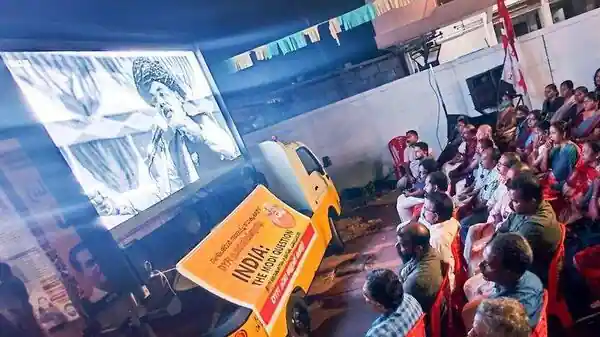ALL THE FUSS ABOUT BBC’S MODI DOCUMENTARY

The BBC recently aired a documentary about Indian Prime Minister Narendra Modi, which has caused quite a stir in India. The documentary, titled “Modi: Journey of a Common Man,” was produced by the BBC’s Asian Network and explores Modi’s rise to power and his impact on India.
The Indian government has criticized the documentary, calling it “biased” and “one-sided.” The government has also called for the BBC to take down the documentary from its website and social media channels and has lodged a complaint with the UK’s media regulator, Ofcom.
Critics of the documentary have taken issue with the way it portrays Modi’s role in the 2002 Gujarat riots, which resulted in the deaths of over 1,000 people, mostly Muslims. Modi, who was chief minister of Gujarat at the time, has been accused of not doing enough to stop the violence and of allowing it to happen. The documentary includes interviews with victims of the riots and their families and suggests that Modi bears some responsibility for the violence. The Indian government has also said that the documentary was ‘selectively edited’ and ‘propaganda’ which was ‘full of falsehoods, misrepresentations and mollified intentions’. However, the BBC has defended the documentary, stating that it is a fair and balanced representation of Modi’s life and political career. They also stated that the documentary was made in accordance with their editorial guidelines and that they stand by their journalism.
The documentary has sparked a major debate about the freedom of the press and the role of media in reporting on politicians and political issues. Some have argued that the government’s response is an attempt to suppress critical reporting and stifle free speech, while others have defended the government’s actions as necessary to protect the country’s image and its leader’s reputation. Modi supporters, on the other hand, have praised the documentary for its fair portrayal of Modi’s rise to power and his efforts to improve the Indian economy and bring development to the country. They argue that the documentary presents a balanced view of Modi’s leadership and that it should be allowed to be shown without censorship. The controversy surrounding the documentary is indicative of the polarizing nature of Modi’s leadership. Modi has a strong base of supporters who see him as a strong leader who is bringing much-needed change to India, while his opponents view him as a divisive figure who is stoking communal tensions and undermining the country’s secular democracy. It’s also worth noting that this is not the first time that Modi and the Indian government have taken issue with the media coverage of the 2002 Gujarat riots. Modi and his supporters have long sought to downplay his role in the riots and to deflect blame onto others. The Indian government has also been criticized for suppressing media coverage of the riots and for intimidating journalists who have reported on them.
In conclusion, the BBC’s Modi documentary has generated a lot of debate and controversy in India. While Modi supporters see it as fair and balanced, critics argue that it is biased and one-sided. The Indian government’s response, including calls for censorship and complaints to UK regulators, highlights the sensitive nature of the issue and the ongoing debate over Modi’s role in the 2002 Gujarat riots.
NAME: KHUSHI. S. KESWANI
COURSE: BBA
UNIVERSITY: GUJARAT UNIVERSITY




